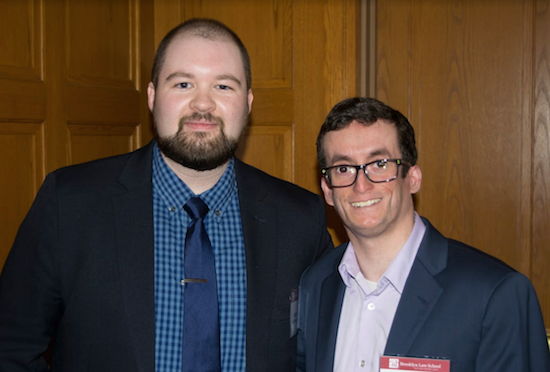Brooklyn Law School hosts fifth annual CUBE Innovators Competition

The winners of Brooklyn Law School's Legal Tech Innovators Competition: Joseph Santiago (left) and Christopher Aranguren. Eagle photos by Rob Abruzzese
Brooklyn Law School’s Center for Urban Business Entrepreneurship (CUBE) hosted its fifth annual Innovators Competition in conjunction with the Clean Energy Business Incubator Program (CEBIP) at Stony Brooklyn University in Downtown Brooklyn on Thursday.
The event was kicked off with the CUBE Innovators Competition and was followed by a CUBE networking reception and panel discussion.
The Innovators Competition is similar to Brooklyn Law School’s (BLS) own version of the TV show “Shark Tank,” where five teams of students present entrepreneurial projects to a panel of judges to address the legal aspects of various social and business issues.
